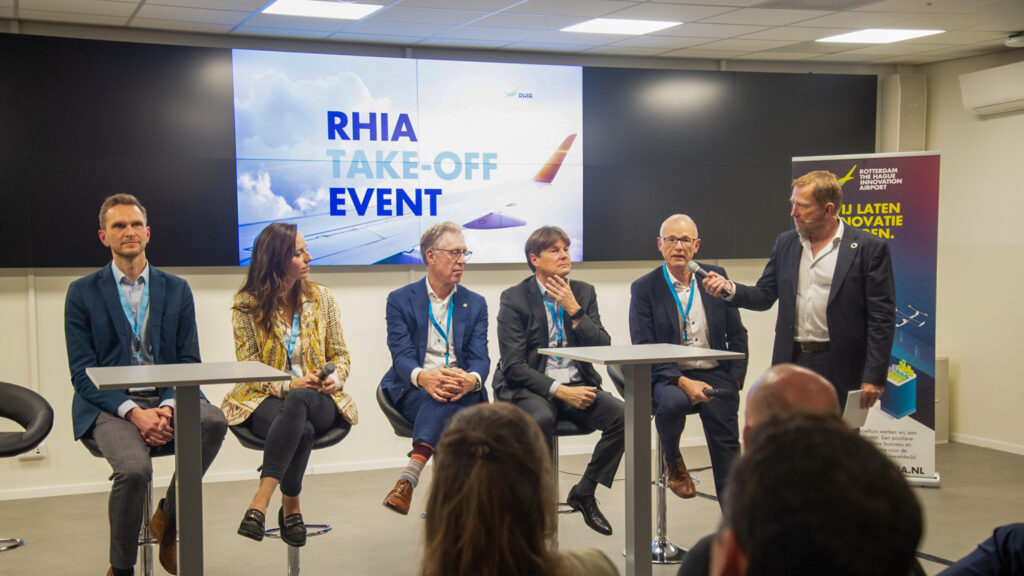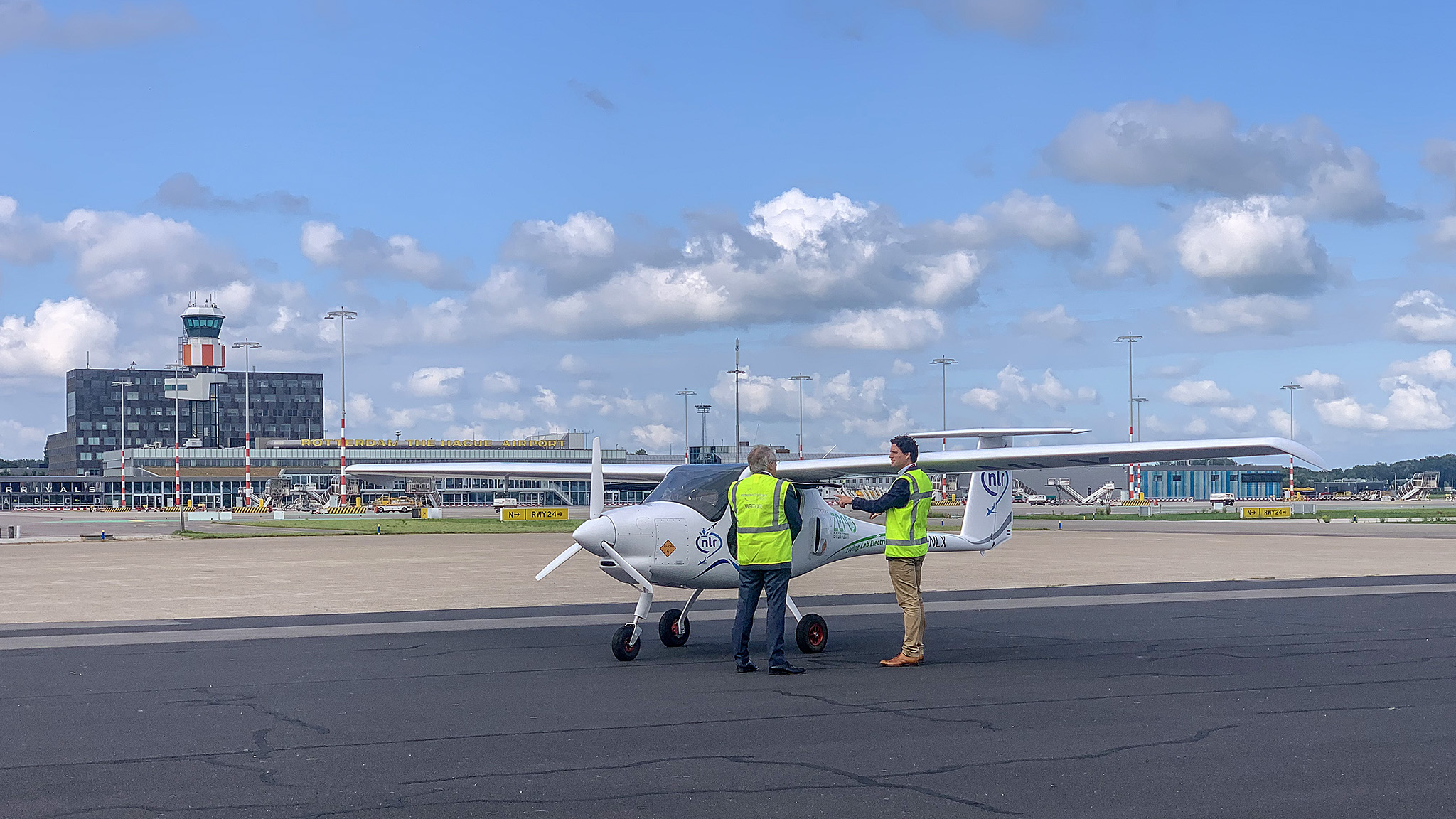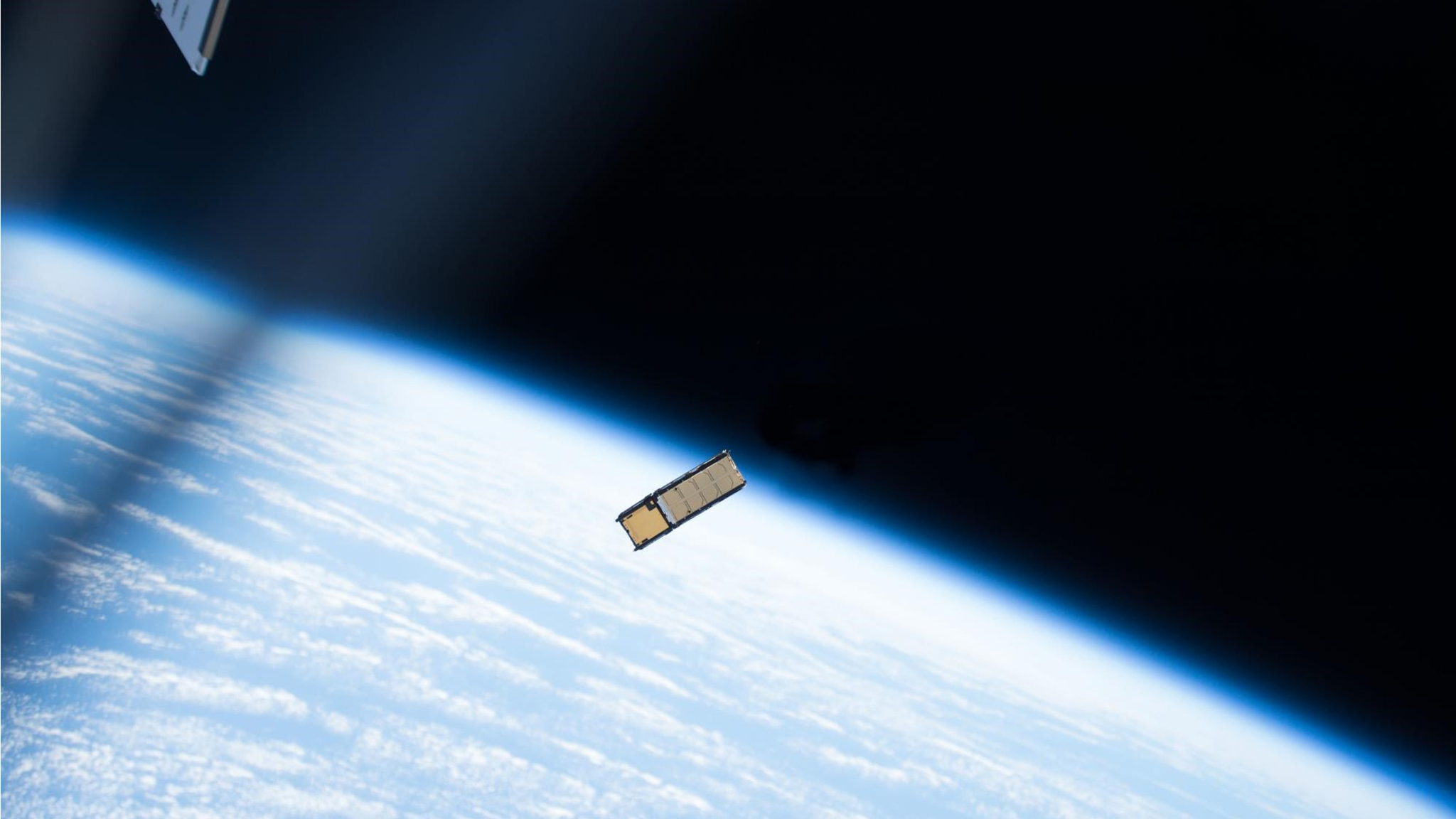After four years of successful collaboration, 2024 promises to be an exceptional year for Rotterdam The Hague Innovation Airport (RHIA). On 19 December, during the RHIA Take-off Event, Frans Everts (Shell), Marcel de Nooijer (Transavia), Henri Werij (TU Delft), Michel Peters (Koninklijke NLR) and Wilma van Dijk (Rotterdam The Hague Airport) signed the new proposal. In their capacity as the Executive Board of RHIA, they are taking the lead in this collaboration with the aim of helping make aviation more sustainable.
Cooperation
The parties involved are using the cooperation to accelerate implementation. The working method is therefore community-driven, privately led and with public support. The greater focus and drive will let the collaboration concentrate on six projects. For the airport, this is an important step in being able to keep working on the requisite innovation and improved sustainability.
“As Rotterdam The Hague Airport, we are pleased to be part of this collaboration, in particular with the other members of the Executive Board,” says Wilma van Dijk, CEO of RTHA. “It shows our common dedication to making aviation more sustainable.”
With this more tightly defined portfolio, the RHIA community will be focusing on six projects over the coming year. These are about researching, demonstrating and testing innovations for sustainable, quieter and more intelligent aircraft (the Fieldlab Next Aviation project), accelerated use of sustainable aviation fuels (Vliegen op SAF), a place where we can use data and digital innovation to develop a smarter and sustainable passenger experience (ATL, the Airport Technology Lab), studying option for quieter flying around the landing runway (Stiller vliegen), continuing to develop the airport as a smart hub for green energy (Smart Energy Airport) accelerating the work on hydrogen-powered flight (DutcH2 Aviation Hub).
The regional governments, the municipalities of Rotterdam and The Hague, and the province of Zuid-Holland are all behind the new course that the cooperative venture will take.
“We are embracing this renewed cooperation as a milestone on the way to a sustainable future for aviation,” says Meindert Stolk, a member of the provincial executive for Zuid-Holland. “Using our joint efforts to drive these kinds of innovations is how we want to have a positive impact on the environment and on society.”
Launch of the DutcH2 Aviation Hub
The DutcH2 Aviation Hub is one of the six new projects. It comprises the development of local infrastructure for producing, storing and using green hydrogen, preparing a hydrogen link between airports and supporting the first flights from RTHA by pioneers such as ZeroAvia, AeroDelft and Conscious Aerospace. This means that the project is playing a crucial role in enabling hydrogen-powered flight from RTHA.
Ron van Manen, director of the Luchtvaart in Transitie foundation, also confirms the need for collaborative efforts such as RHIA. “The aviation sector is about to enter a new era. In the race to climate-neutral aviation, we need to adopt a system-wide approach in which the entire chain – airlines, aircraft manufacturers, airports and the energy sector – are working together towards sustainable aviation.”
Involvement of NLR
All the core players have joined this collaboration, with RHIA as the linking factor. NLR also sees an important role in helping to achieve concrete, short-term goals for getting sustainable innovations embedded in aviation operations. Together with the partners on the executive board and the public partners in the region, NLR wants to make this possible at the RTHA airport as a test site.




